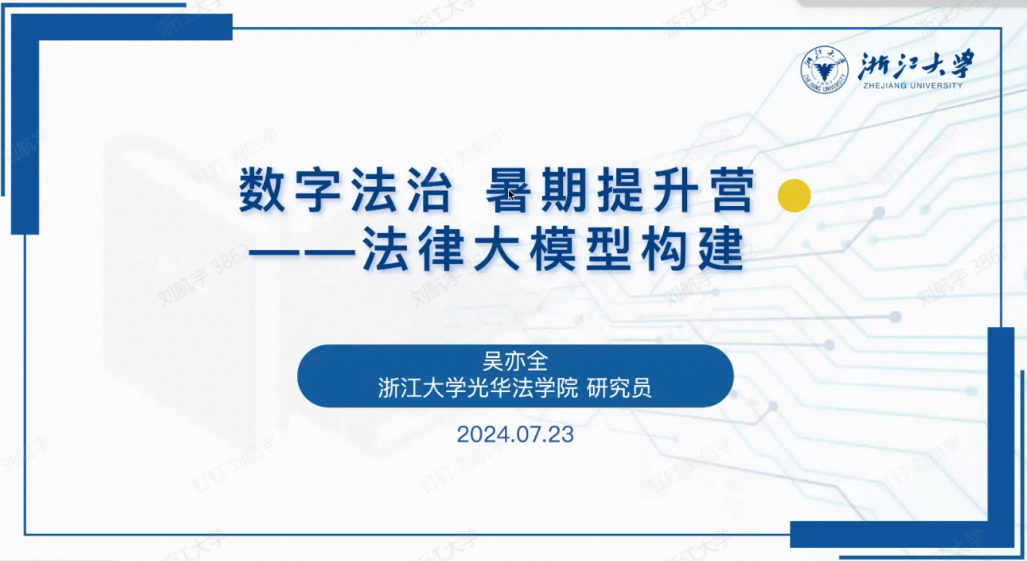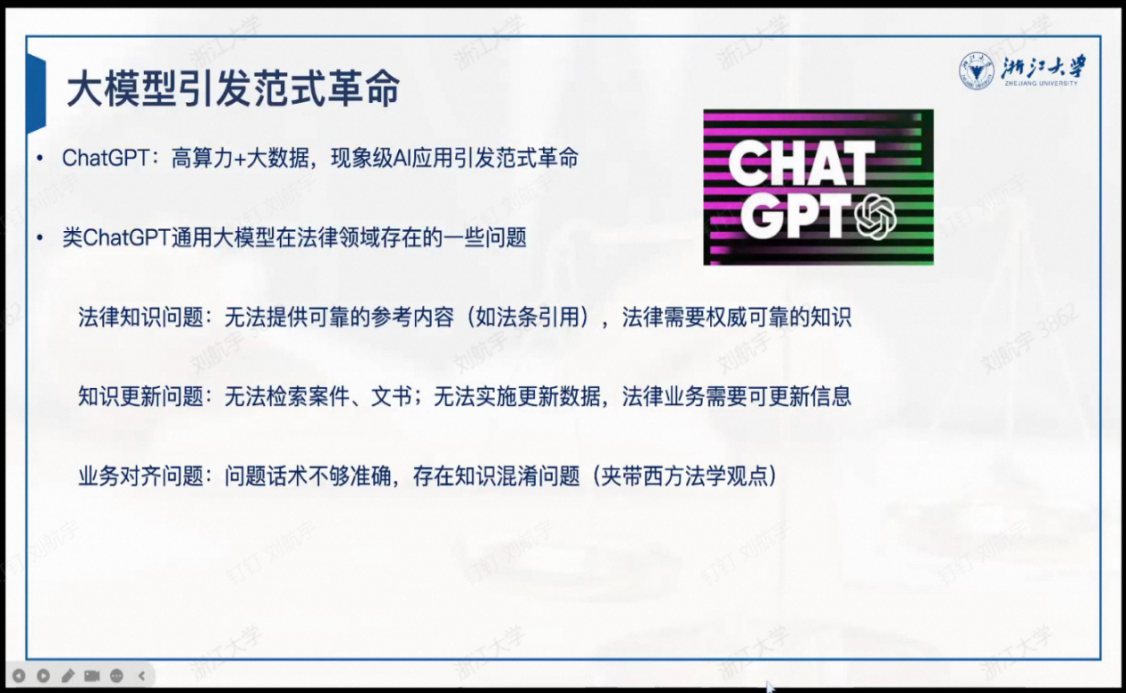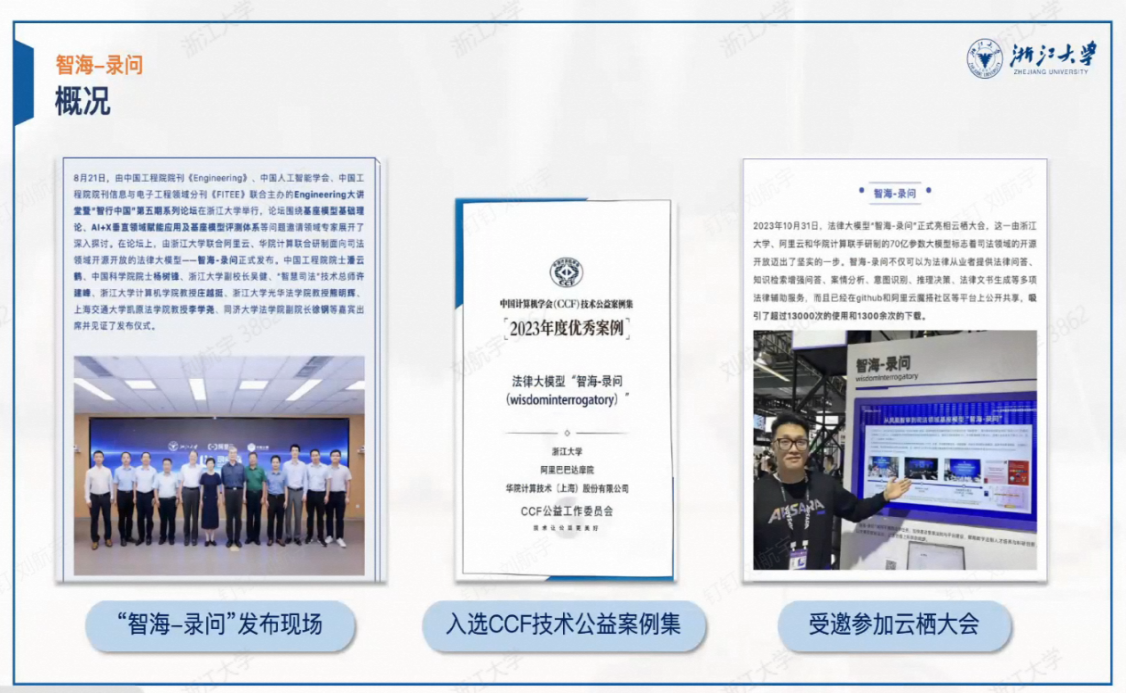- The Second China–Latin America and Caribbean Region Legal Professionals Exchange Program (Hangzhou Session) was successfully held at Zhejiang University.2025-12-18
- “If the World is a Family” — Student Exchange and Legal Practice Seminar between Newcastle Law School and Guanghua Law School2025-12-08
- LLM & SJD International Students of Guanghua Law School Attend Zhejiang International Legal Service Partnership Conference2025-12-04
In the wave of digital transformation, the field of law is undergoing unprecedented changes. To actively adapt to this trend, the Student Growth Center of Guanghua Law School at Zhejiang University held a summer enhancement camp on digital rule of law on July 23, 2024, themed “Construction of Legal Big Models.” The camp was honored to invite Dr. Wu Yiquan (researcher from the Hundred Talents Plan of Guanghua Law School), as the keynote speaker to explain the application of legal big models in practice to undergraduate students majoring in digital rule of law and postgraduate students in the direction of digital rule of law. Dr. Wu Peicheng, the head teacher of Law 2305 (Digital Rule of Law Class), and Teacher Chen Si (director of the Educational Teaching Center of the law school), also attended the event.

At the beginning of the event, Dr.Wu Yiquan delivered a brief speech, warmly welcoming teachers and students to participate in the digital rule of law summer camp and introducing the outstanding achievements of Dr. Wu Yiquan in the field of digital rule of law and other academic areas. He emphasized that Dr. Wu Yiquan’s lecture on the construction of legal big models is crucial for the integration of technology and law in the education of students majoring in digital rule of law, and expressed his anticipation for the upcoming insightful lecture.
Dr. Wu Yiquan began by discussing the macro background of the rise of legal big models, elaborating on their tremendous potential in diverse application scenarios. The emergence of legal big models not only enhances work efficiency in traditional legal settings such as courts and law firms but also plays a role in various fields including legal classroom assistance, legal aid, and legal consultation, providing the public with more convenient and efficient legal services. Dr. Wu Yiquan specifically mentioned that the rise of a new generation of artificial intelligence technologies, represented by ChatGPT, signifies that AI has entered a new phase in the application of the legal field.

However, Dr. Wu Yiquan also candidly pointed out the challenges faced by legal big models in practical applications, including the accuracy of legal knowledge, the speed of knowledge updates, and the alignment of business scenarios. He emphasized that legal scenarios demand models to strictly adhere to laws and regulations, rather than engage in innovative divergence. At the same time, the frequent changes in laws and regulations require models to capture the latest information in real-time. Furthermore, the issue of business alignment demands that models accurately understand and respond to specific legal tasks.

During the open question session, students actively asked questions about the field of legal artificial intelligence. Dr. Wu YiQuan listened patiently and answered each question in turn. He not only provided practical advice for specific issues but also engaged in in-depth discussions with students on topics such as learning methods for computer courses and directions for improving large models, pointing out the path for everyone's study and research.
During the lecture, Dr. Wu Yiquan demonstrated profound professional knowledge and extensive practical experience. He addressed specific technical challenges with vivid examples and an easy-to-understand explanation style, stimulating the students' strong interest in legal technology and their boundless vision for future development. He encouraged everyone to be brave in exploring the unknown, daring to challenge tradition, and to use the power of technology to promote innovation and development in legal education.

